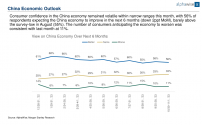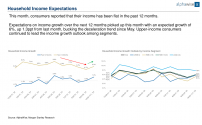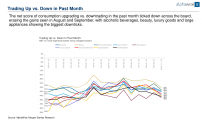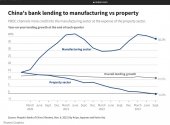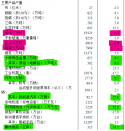If you read my initial post carefully, my observations are based on over 200 meetings with publicly traded companies who, themselves have 10s and 100s of millions of customers that they serve. If you believe those are "anecdotal evidence that do not represent the country", let me illustrate precisely why that is a naïve (at best) and if not disingenuous take.
As an example, Yum China has over 400 mln members and serve some 700 mln customers in China in over 1000 cities through approx. 15000 stores (KFC/Pizza Hut/Lavazza/Little Sheep/HuangJiHuang). When Joey Wat (CEO of YUMC) tells me that she's seeing consumption downgrade (because ticket size is shrinking), you should know to recognize that it isn't "an anecdote" but rather based on their millions of transactions that they see daily. They are facing significant competition from Tastien (Chinese hamurger joint with 3000 stores), Wallace (fried chicken chain with 20000 stores), and Saizeriya (Japanese company serving Italian fast food with a few thousand stores) - because these competitors serve cheaper products.
You can choose to view this as "an anecdote", but that tells me more about your intelligence than about your willingness to engage the subject matter.
Btw this point is just as valid when I claim industrial upgrade is happening at a faster rate - I'm not saying it because I spoke to "some guy" - I attended the China International Industrial Fair (the Zhuhai Airshow equivalent for industrial automation in China) and saw dozens of companies and spoke to dozens of attendees to understand the technology improvements.
By your logic, this can be also dismissed as "an anecdote" - but I don't see you address this point, but I assume that is because it "fits your opinion".
As I said I am more than happy to elaborate on specific examples but I do not appreciate this "your data is bad because it doesn't fit my view" vibes.
I did read your initial post very carefully, and the reason I dismiss it is exactly because it is not a randomised representative sample of the population.
Doing a survey of any kind requires a sufficiently sized sample as well as ensuring the sample is sufficiently random and representative of the population you are wanting to sample.
Other important things include having a consistent way of surveying the ideas you are interested in etc.
I'm not really how anyone can acknowledge anything that you wrote in the initial post other than say "the people you talked to expressed those views which are legitimate to themselves, but the sample size and methodology does not grant you the ability to make a population level claim".
As for your data -- your data is bad because your methodology (even to the level you described it) is bad.
If you recognized the limitations of your methodology and trusted it as anecdotes which you personally experienced (and anecdotes are still legitimate experiences and views from the individuals you spoke to), then I wouldn't have an issue, but broadening that to overall national sentiment or even a national zeitgeist, is taking it a stretch too far.

